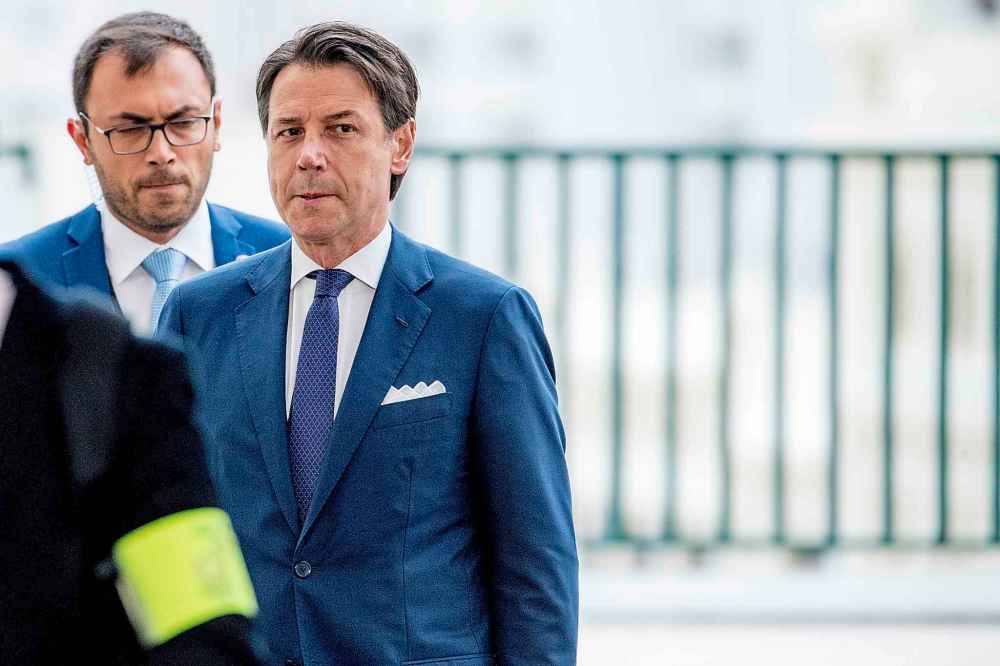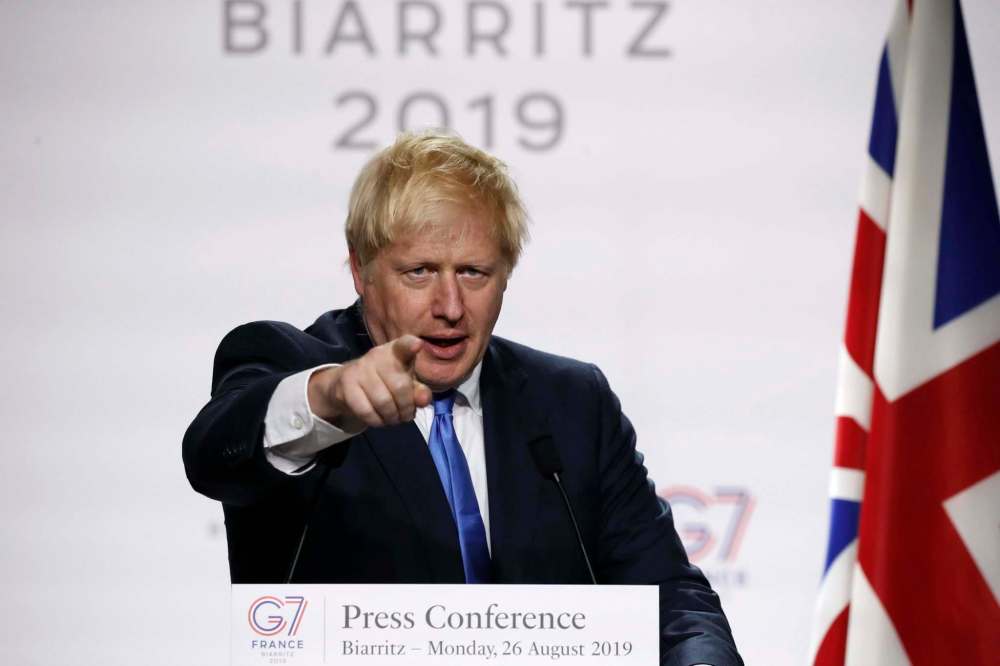France’s G7 summit was destined for futility
Read this article for free:
or
Already have an account? Log in here »
To continue reading, please subscribe:
Monthly Digital Subscription
$0 for the first 4 weeks*
- Enjoy unlimited reading on winnipegfreepress.com
- Read the E-Edition, our digital replica newspaper
- Access News Break, our award-winning app
- Play interactive puzzles
*No charge for 4 weeks then price increases to the regular rate of $19.00 plus GST every four weeks. Offer available to new and qualified returning subscribers only. Cancel any time.
Monthly Digital Subscription
$4.75/week*
- Enjoy unlimited reading on winnipegfreepress.com
- Read the E-Edition, our digital replica newspaper
- Access News Break, our award-winning app
- Play interactive puzzles
*Billed as $19 plus GST every four weeks. Cancel any time.
To continue reading, please subscribe:
Add Free Press access to your Brandon Sun subscription for only an additional
$1 for the first 4 weeks*
*Your next subscription payment will increase by $1.00 and you will be charged $16.99 plus GST for four weeks. After four weeks, your payment will increase to $23.99 plus GST every four weeks.
Read unlimited articles for free today:
or
Already have an account? Log in here »
Hey there, time traveller!
This article was published 26/08/2019 (2296 days ago), so information in it may no longer be current.
This year’s Group of Seven industrialized countries summit in Biarritz, France, was never going to be easy. As you go around the table, you can see why.

Prime Minister Giuseppe Conte was there representing Italy. He had never really wanted to be prime minister, but he agreed to lead the quarrelsome coalition of the populist League and the anarchistic Five Star Movement. That coalition fell apart last week.
Mr. Conte has already quit and will not accept reappointment. He occupied the Italian chair at Biarritz only because Italian politicians cannot agree what to do next.
British Prime Minister Boris Johnson occupied the U.K. chair because the ruling Conservatives got rid of their previous leader, Theresa May, and the outlandish Mr. Johnson was the most memorable Conservative offering to take her place.

He has a fight on with the other Europeans in the room over his plan to take the U.K. out of the European Union. His chances of achieving that aim — and his chances of remaining in office beyond Halloween — are doubtful at best.
President Emmanuel Macron of France, as host, made the arrangements and led the discussions. His main aims were to confront the government of Brazil over forest fires in the Amazon basin and to get the others to gang up on U.S. President Donald Trump to bring Iran in from diplomatic and economic isolation. For domestic consumption, he needed to be seen standing up boldly to Mr. Trump.
Angela Merkel, Germany’s leader since 2005, will quit in 2021 on account of her ebbing political support. Her industrial base, formerly the main engine of European prosperity, has drifted toward recession in recent months, but she shows no sign of wanting to lead an economic rebirth.

Mr. Trump’s main thing these days is to achieve something he can pass off as victory in his trade war with China. No one in the room could help him toward that goal: they all think his strategy is insane; he thinks they are enemies of the United States and he wants to conduct his trade war alone. He must seek re-election next year.
Japan’s Shinzo Abe, secure in office since his re-election in 2017, was there to exchange mutual admiration with Mr. Trump. The two announced they had agreed in principle on a free trade treaty, which would be completed and signed soon.
Prime Minister Justin Trudeau, representing Canada, was there in search of photographs and moments where he would look like an important world statesman, though Canada’s claim to be one of the seven leading industrial economies is always vulnerable to challenge.

At one time, Canada was included in the G7 as a way of giving the United States two votes, but in the Trump era, even that purpose has evaporated.
With an election just eight weeks away, Mr. Trudeau can scarcely be bothered with the great questions of our time. There was little for him to do but smile a lot and keep out of trouble.
It remains useful, in theory, for the leaders of the top industrial countries to sit down together and compare notes on the tasks that face them.
In the circumstances of this year, the meeting had little chance of producing a good result. They might as well have stayed home.












